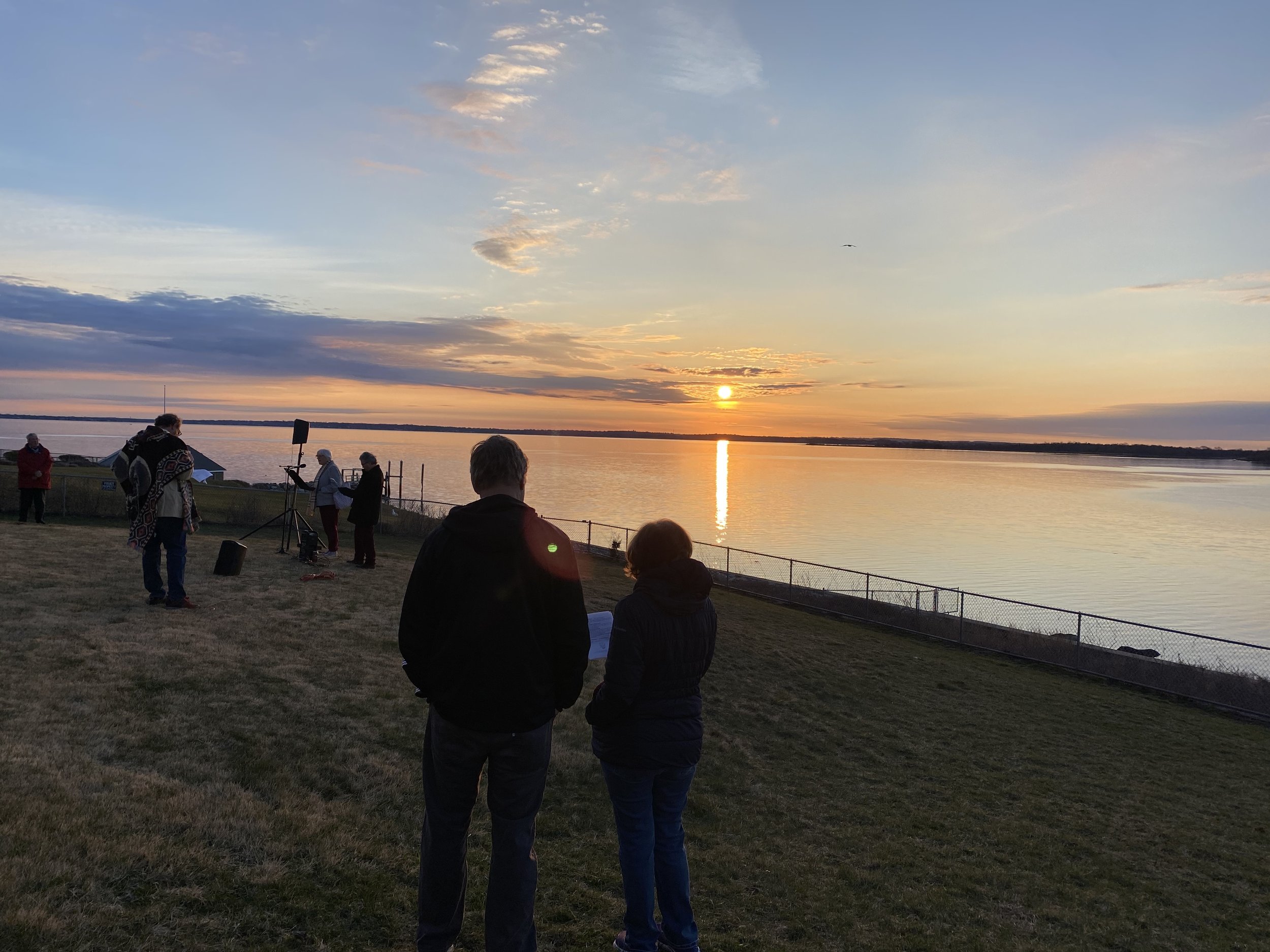April is the cruelest month
. . . The first line of T.S. Eliot’s poem The Waste Land explores brokenness and loss in the U.S., England, and Europe at the end of the first world war. As an English major I studied this poem, and as a Theology minor I reflected on the inevitable cycle of death followed by rebirth.
Here in the Northeast, spring is pushing up through the soil and the spring birds are flying in. My crocuses, snow drops, and daffodils are blooming. In the creek beds, skunk cabbage blossoms have given birth to green romaine lettuce-like leaves. Ospreys are returning to their Rhode Island nests, many blown down during the fierce winter or removed from cell towers for safety reasons. The birds have work to do. They dive for fish in the bay and collect twigs and branches for their nests. The screech of red-wing blackbirds sounds from the reed patches near the water and sharp killdeer calls and trebles trill on the beach as they scurry around. Purple finches, who look more rosy than purple, are visiting our feeders.
Winter ducks are leaving, and blue herons and egrets are suddenly here. The loons on the bay are changing from their winter gray to black. Every one I’ve peered at with my binoculars carries a fish in its beak.
There is much to grieve in the world, much pain for the regions plagued by war, much sorrow at the bedside of the dying as they let go of life on this plain, and much uncertainty during these times of angry division.
As the monotheistic religions celebrate holy times these weeks, may we find the strength to find solace in the inevitable cycle of death and birth and fill our hearts with trust and peace.
Sunrise service on Narragansett Bay at Warwick Neck lighthouse

